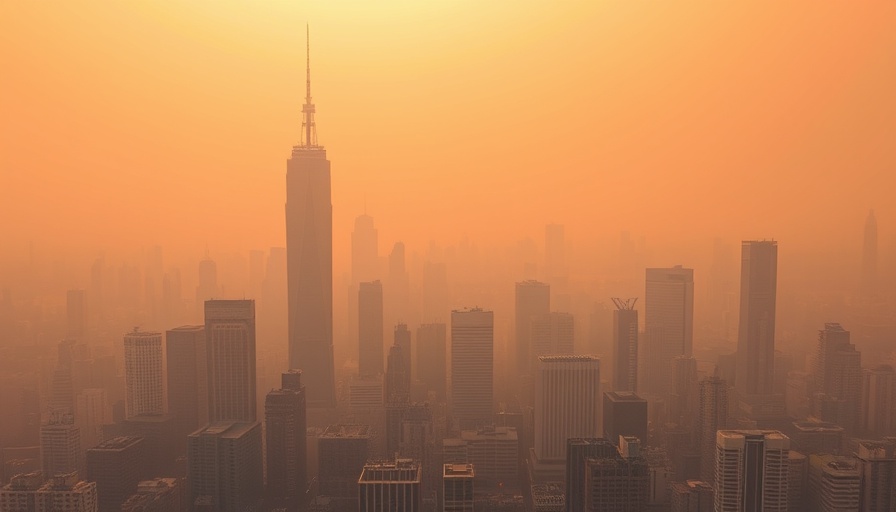
East Asia's Air Pollution Cleanup: A Double-Edged Sword
In recent years, East Asia, particularly China, has led a surprising and impactful environmental initiative: the substantial reduction of air pollution. Public health improvements, notably a staggering 75% cut in sulfur dioxide emissions, are commendable milestones. However, a new research study published in Communications Earth and Environment suggests that these significant strides may carry unintended consequences by accelerating global warming.
Understanding the Connection Between Aerosols and Temperature
This paradox arises from the role aerosols—airborne particles emitted from human activities—play in regulating the Earth's temperature. According to co-author Daniel Westervelt from Columbia University's Lamont-Doherty Earth Observatory, these particles reflect sunlight away from the Earth's surface, creating a cooling effect. Thus, their reduction exposes the planet to more sunlight, exacerbating the already concerning trend of global warming.
A Potentially Short-Lived Effect
During a time when global temperatures have risen at an alarming rate—driven primarily by greenhouse gas emissions—the research team’s findings raise questions about the future trajectory of warming in light of these air quality improvements. Co-author Laura Wilcox emphasizes that while the effects of cleaning the air may lead to short-term warming, the long-term impacts of carbon dioxide emissions will linger for centuries, indicating that this phase of accelerated warming may be temporary.
The Impacts on Global Climate and Health
The apparent irony of improving air quality at the risk of increasing global temperatures is not lost on climate scientists. As nations in East Asia achieve greater air quality, they indirectly reveal the stark reality of climate change driven by greenhouse gases. Bjørn H. Samset, the lead author of the study, explained that the change in aerosol levels has significant implications not only in East Asia but in warming trends seen around the globe, particularly in the Pacific region.
What Does This Mean for Seattle Residents?
For the Seattle community and beyond, this research emphasizes the importance of a balanced approach to environmental health. While we advocate for cleaner air—an essential factor in public health, especially for vulnerable populations—the findings remind us that solving one environmental challenge could potentially exacerbate another. The takeaway? As we celebrate victories against air pollution, we must remain vigilant about rising global temperatures and the impact of our collective carbon footprint.
Looking Toward a Sustainable Future
As stewards of the environment, Seattle residents can contribute to sustainable living by supporting policies aimed not only at reducing air pollution but also at addressing greenhouse gas emissions holistically. This dual approach will better equip us to face climate change, safeguarding both local health and the global climate.
In light of these findings, it's crucial to maintain an informed dialogue around climate actions we can take at the local level. Together, we can prioritize healthful living while fostering a sustainable future for planet Earth.
Let’s advocate for smart environmental policies that ensure a cleaner, healthier future, tackling pollution and greenhouse gases hand in hand.
 Add Row
Add Row  Add
Add 




 Add Row
Add Row  Add
Add 

Write A Comment